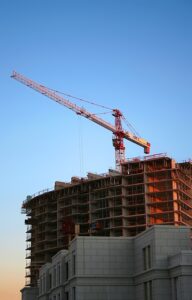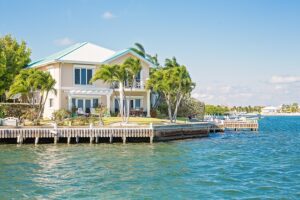Navigating Executive Condominiums (ECs) in Singapore: A Guide to Prices, Policies, and Market Trends
Executive Condominiums (ECs) in Singapore serve as a middle-ground housing option for singles and families transitioning from public to private living. They offer a blend of benefits from both Housing & Development Board (HDB) flats and private condominiu…….
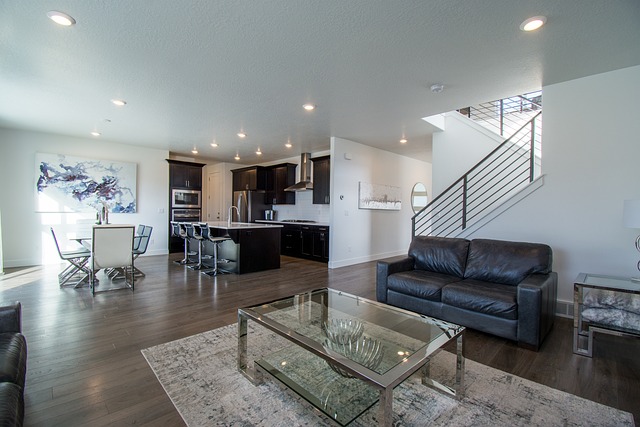
Executive Condominiums (ECs) in Singapore serve as a middle-ground housing option for singles and families transitioning from public to private living. They offer a blend of benefits from both Housing & Development Board (HDB) flats and private condominiums, with larger spaces and shared facilities, and have seen their prices steadily rise due to their popularity and the influencing factors of location, unit type, age, and broader market dynamics. Prospective buyers must consider the specific maturity period and eligibility requirements of each EC project, which typically involve being first-time flat owners or income caps according to Housing & Urban Development (HUD) guidelines. The evolution of EC policies in Singapore reflects a strategic balance between affordability and market stability, with government measures like TDSR and MSF playing a role in shaping the pricing. ECs are now a mature and integral part of Singapore's housing landscape, acting as stepping stones and enriching the diversity of residential property offerings. The Average Price Of EC In Singapore has been on an upward trend, reflecting their increasing desirability. Market dynamics such as economic conditions, supply and demand, government regulations, and demographic shifts all contribute to the pricing of ECs, making it essential for investors and homebuyers to stay informed on these factors for accurate market analysis.
Explore the nuances of Executive Condominiums (ECs) in Singapore, a unique housing hybrid that caters to both families and investors. This article delves into the multifaceted aspects of ECs, from their inception to current market dynamics, with a special focus on the average price of ECs in Singapore. Navigate through the evolving policies that shape these properties, dissect recent trends influencing resale and new launch prices, and gain insights into financing options for prospective owners. Join us as we forecast future EC market movements, ensuring you’re well-equipped with knowledge to make informed decisions within this vibrant sector of Singapore’s real estate landscape.
- Understanding Executive Condominiums (ECs) in Singapore: A Comprehensive Guide
- The Evolution of EC Policies and Their Impact on Housing in Singapore
- Key Factors Influencing the Average Price of ECs in Different Regions of Singapore
- Analyzing Recent Trends in EC Resale and New Launch Prices in Singapore
- Financing Your Executive Condominium: Understanding Mortgage Options and Affordability
- Future Projections for EC Prices and Market Dynamics in Singapore
Understanding Executive Condominiums (ECs) in Singapore: A Comprehensive Guide
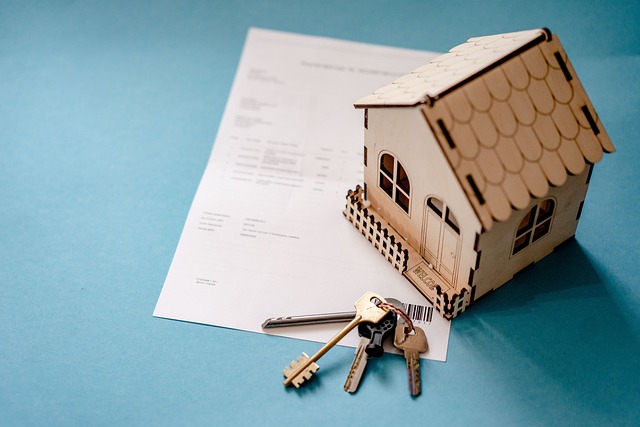
Executive Condominiums (ECs) in Singapore offer a unique housing option for both singles and families who are looking for a step up from public housing but do not wish to commit to the full price of private properties. These hybrid homes bridge the gap between Housing & Development Board (HDB) flats and private condominiums, catering to the middle-income group with features that include larger living spaces, condominium facilities, and the potential for future re-sale value appreciation. As of recent years, the average price of an EC in Singapore has been on the rise, reflecting their growing popularity and the desirability of living in such developments. Factors influencing the pricing include location, unit type, the age of the development, as well as the overall property market trends in Singapore. Prospective buyers should consider the differing maturity periods of various ECs, as well as the eligibility criteria, which typically require applicants to be first-time flat owners or have a household income cap set by the Housing & Urban Development (HUD) to qualify for an EC. Understanding these nuances is crucial for anyone interested in purchasing an Executive Condominium, as it ensures informed decision-making and aligns expectations with the realities of the property market in Singapore.
The Evolution of EC Policies and Their Impact on Housing in Singapore

The evolution of Executive Condominium (EC) policies in Singapore has been both gradual and responsive to the changing needs of the housing market. Initially introduced as a hybrid housing option for families, combining the benefits of both public and private housing, ECs have played a pivotal role in providing affordable housing solutions. Over the years, the policies governing ECs have undergone significant adjustments, influencing their average price in Singapore. For instance, the eligibility criteria for purchasing an EC have been tightened to ensure that only couples who can afford to service higher mortgage loans are eligible, thus maintaining the balance between accessibility and market stability. These policy tweaks have directly impacted the pricing of EC units, with prices reflecting the value proposition they offer as a housing option. The average price of ECs in Singapore has risen in tandem with economic growth, reflecting the premium that residents place on living in these increasingly popular developments. The Total Debt Servicing Ratio (TDSR) and Mortgage Serviceability Ratio (MSF) frameworks introduced to monitor housing loans have further shaped the pricing of ECs, ensuring they remain a viable option for middle-income families while preventing overheating in the property market. As a result, the EC segment has matured into a vibrant part of Singapore’s housing landscape, offering a stepping stone for upgrading from public to private housing, and contributing to the stability and diversity of Singapore’s residential property offerings.
Key Factors Influencing the Average Price of ECs in Different Regions of Singapore
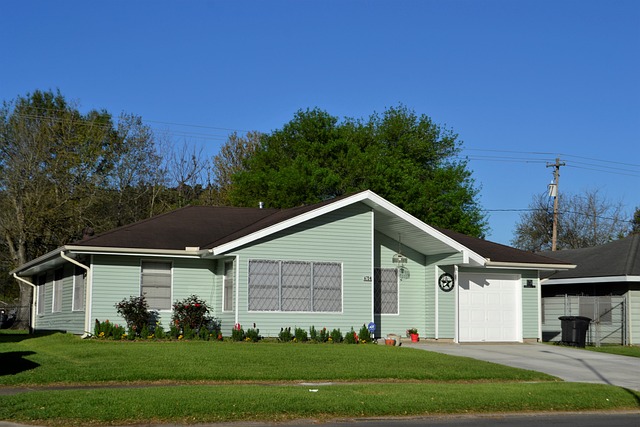
The average price of Executive Condominiums (ECs) in Singapore is influenced by a multitude of factors, each playing a pivotal role in shaping the property landscape. Geographical location emerges as a significant determinant; ECs situated in mature estates such as Sengkang, Bishan, and Tampines typically command higher prices due to their established infrastructure, proximity to amenities, and well-connected transportation networks. The balance between supply and demand also exerts considerable impact on pricing. Developments that offer a mix of unit types and sizes cater to diverse buyer needs, affecting price points accordingly.
Furthermore, government policies and regulations are critical in guiding the market dynamics of ECs. The introduction of cooling measures can affect purchasing power and affordability, thereby influencing the average price. Policies that stipulate the duration of public housing eligibility for EC buyers or the resale lease inflation level also affect the perceived value and pricing of these condominiums. Market sentiment and economic conditions further shape the landscape; during periods of economic uncertainty, the property market may see a slowdown, which can impact average prices. Conversely, in a robust economy with low interest rates, demand for ECs as a stepping stone to private property can drive up prices. These factors collectively contribute to the variability in the average price of ECs across different regions of Singapore.
Analyzing Recent Trends in EC Resale and New Launch Prices in Singapore

In recent years, the Executive Condominium (EC) market in Singapore has witnessed a dynamic shift in both resale and new launch prices, reflecting broader trends within the property sector. The average price of EC units has been on an upward trajectory, influenced by factors such as economic growth, population changes, and government policies aimed at balancing public housing availability and affordability. Notably, resale prices have been buoyed by a combination of limited supply and sustained demand from both upgraders and investors. This trend is particularly evident in mature estates where these properties are increasingly sought after for their centrality and established amenities. On the other hand, new launch ECs often command higher prices due to their newer facilities, lease tenure extension to 99 years, and attractive locations. Developers have been adept at pricing these new projects competitively, taking into account both market sentiment and the evolving preferences of homebuyers. The average price of EC in Singapore continues to be a reflection of these interplaying factors, with prices generally reflecting the quality of the development, its location, and the overall state of the property market. Prospective buyers and investors keen on the EC segment should monitor these trends closely, as they can significantly impact investment returns and the long-term value of these properties.
Financing Your Executive Condominium: Understanding Mortgage Options and Affordability
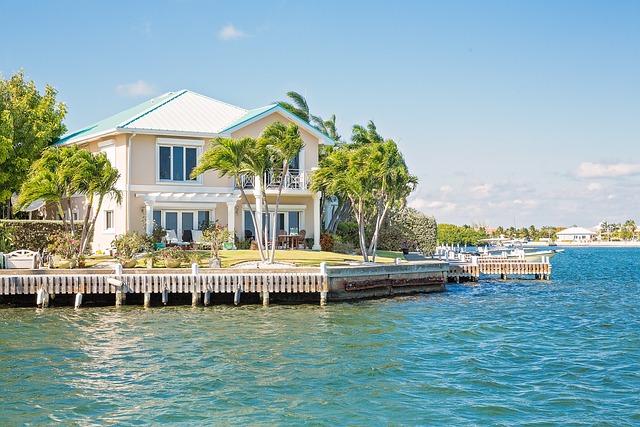
When considering the purchase of an Executive Condominium (EC) in Singapore, understanding the financial aspects, particularly mortgage options and affordability, is paramount. The average price of ECs has been on an upward trajectory, reflecting their desirability as a housing option for both singles and families. Prospective buyers must assess their budget and explore various financing options to ensure they secure the best possible mortgage terms. Banks and financial institutions offer a range of mortgage products, from fixed-rate to floating-rate loans, each with its own interest rates and repayment structures. It’s crucial for buyers to compare these options and consider factors such as the loan’s tenure, early repayment penalties, and additional borrowing limits. The Singaporean government has schemes like the Housing & Development Board (HDB) Concessionary Loan Scheme for ECs, which can help eligible applicants with more favorable loan terms. Prospective buyers should also factor in other costs associated with purchasing an EC, including legal fees, stamp duty, and maintenance fees, to ensure a comprehensive understanding of the total cost of ownership. By meticulously evaluating their financial situation and the various mortgage options available, buyers can make informed decisions that align with their long-term financial goals and lifestyle aspirations.
Future Projections for EC Prices and Market Dynamics in Singapore

The Average Price Of EC In Singapore has been a subject of keen interest among property investors and homebuyers alike, particularly given the dynamic nature of the real estate market in Singapore. As of recent years, Executive Condominium (EC) prices have reflected the balance between public and private housing, offering an affordable option for upgraders. Looking ahead, future projections suggest that EC prices are likely to continue evolving alongside the broader economic indicators and government policies. Factors such as population growth, demographic shifts, and infrastructure developments will play a pivotal role in shaping market dynamics. The completion of new EC projects and the absorption rate of these units will also influence price trends. Investors should keep an eye on the supply and demand equation within the EC segment, as well as interest rate changes that could affect mortgage affordability. With the Singapore government’s ongoing efforts to balance housing affordability and market stability, the Average Price Of Ec In Singapore is expected to remain a key indicator for potential buyers and investors monitoring this vibrant sector of the property market.
Executive Condominiums (ECs) in Singapore have carved out a distinct segment within the nation’s dynamic housing market. This article has delved into the nuances of ECs, from their inception and policy evolution to the factors influencing their average price in various regions across the island. The analysis of resale and new launch prices, coupled with insights into financing options for prospective buyers, provides a comprehensive understanding of the current market landscape and its trends. As the Singaporean property market continues to evolve, the future projections for EC prices and market dynamics will undoubtedly shape the living choices of many families. The EC’s unique position as an upgrade from public housing yet not reaching the full privatization of private condominiums, makes it a significant and sought-after option in Singapore’s diverse property portfolio. Prospective homeowners considering an EC as their next abode would do well to stay abreast of these trends and factors that influence both affordability and investment potential in this thriving sector.




